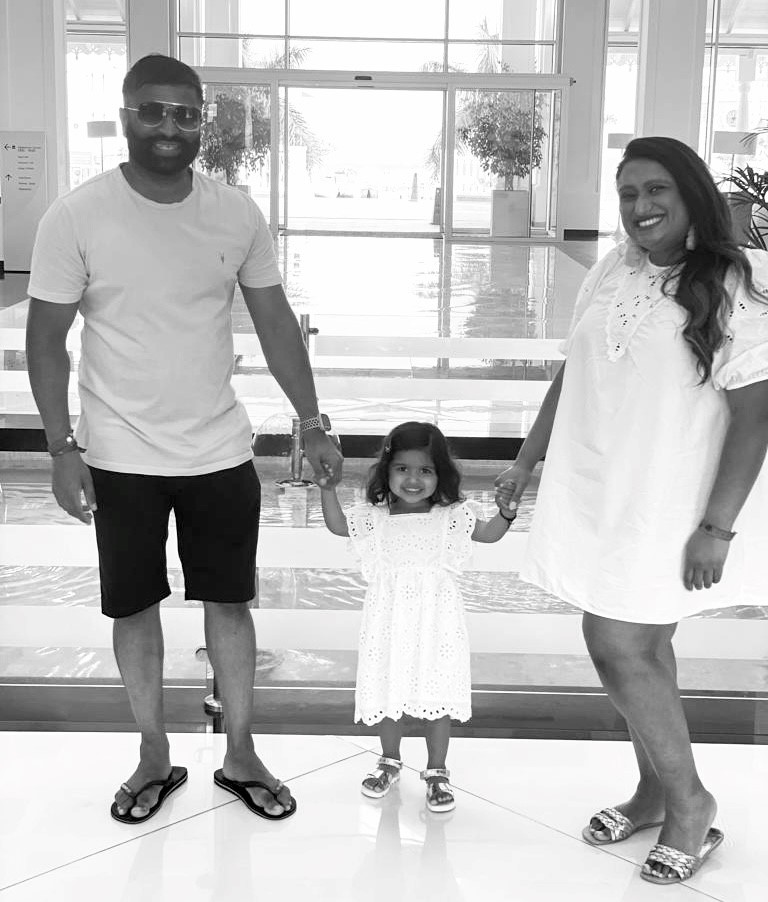Balancing Grief And Working Life: A Personal Experience
RECRUITMENT • Mar 8, 2023

Grief is one of the most profound and complex emotions a human being can experience. It’s an inescapable consequence of the deep and binding relationships we enjoy as human beings, and as such, is an experience we all must endure at one point or another. It can also manifest in a variety of different ways; while for many people, grief gradually eases with support from friends and family. For others, feelings of loss remain debilitating and may lead to depression, anxiety or PTSD.
Just as there’s no handbook for managing grief, there’s also no manual for adjusting back into work and normal life after a significant loss. As society rightly places greater emphasis on the ability to be our ‘authentic selves’ at work, this raises challenging questions for those working through the stages of grief after the loss of a loved one. The sadness will never entirely fade, and yet neither do life’s responsibilities – the two must instead find a way to co-exist. To explore the experience of coping with grief whilst returning to working life, we spoke with GRG Executive Search’s Nisha Patel, who lost her husband suddenly and unexpectedly in 2022.
A powerful loss
Losing her husband and the father of her young daughter rearranged the fabric of Nisha’s life in a way she’d never thought possible. She explained, “Having recently lost my father, at the time, I thought losing a parent was the most tragic type of loss. However, nothing affected me as deeply as the loss of my husband. I saw him day in day out, and all my dreams and aspirations were with him. That kind of loss changes you in a way you can’t explain or comprehend unless you’ve been through it. It’s like there’s a piece of glass between you and the world – life goes on for everyone else, but for you, it’s fundamentally different.
”In the first few weeks after her husband’s death, Nisha found herself taking things day by day, and trying to keep going for the sake of her young daughter: “For a while, I was just in shock. Then after the first month I started to think about what tomorrow might look like for the sake of my little girl. It was a case of taking things slowly and getting used to feeling again.
”Nisha, her daughter Ruby and husband Nilesh
Finding a new normal
Although work had always been an important part of Nisha’s life, in the wake of her husband’s death, it took on a new importance. She notes, “Being a widow meant I was now a single parent on a sole income. Before, I had Nilesh’s income to fall back on and we had learnt when I was on my maternity leave to live on his salary, but I suddenly became totally reliant on my job.
”When transitioning back into working life, receiving the right workplace support is vital – research indicates that in the first six months after the loss of someone close, a person’s productivity is only 70% of normal. Nisha explains, “I was given as much time as I needed to process my loss and try to establish some form of routine and normality in my personal life. After this, I did a phased return, which meant I worked from home a couple of hours a day at first, then stayed on restricted responsibilities for a while after returning to the office. I felt genuinely cared for, which during such a terrible personal time made one part of life easier.”
Opening up
Despite the fact that grief and death are such ubiquitous parts of life, research from bereavement support charity Sue Ryder reveals that 51% of us are scared to say the wrong thing to someone close to us who has lost a loved one. This fear only becomes amplified in a workplace setting, where professional boundaries can make us even more hesitant to have potentially uncomfortable conversations. This is something that Nisha experienced first-hand, as she found that one of the most challenging aspects of returning to work was that not many people knew how to approach the subject of her grief. She explains, “When you return to ‘normal life’ after something like this, you find that people are scared to address what’s happened. They’re either worried about upsetting you, or they simply can’t find the words.
”When the deep loss that someone has experienced goes unrecognised within the workplace and the subject isn’t discussed, this can lead to what psychologists call “disenfranchised grief”. This can make it harder to recover to some form of normality, and for the affected person to reach their full potential within their role once again. Nisha explains, “For me, a vital part of entering into a more positive mental space has been being able to talk about my husband and his loss. I do understand that it can make people feel uncomfortable, but I’d always rather talk about my husband than not. I was married for 16 years, he was my partner for 21 years, and he’ll be a part of my life forever – I don’t want to erase his memory as it is all I have left so it is important I can talk about him and the loss.”
For colleagues who may not know how to handle the subject of grief after a bereaved person returns to work, Nisha has some advice: “Reach out to them and let them know you’re there if they want to talk about how they’re feeling, even if it’s just sending a teams message. If you’re close to them, invite them out for a coffee. Don’t be tempted to offer empty platitudes like ‘they wouldn’t want you to be sad’ – trust me, you’ll only make it worse! And don’t try to ‘fix’ them and make them feel better. Part of the journey of grief is dealing with your feelings and being allowed to express them, so give them space and permission to do that.”
Shunning the stigma
Having kept her experience largely to herself as well as close friends and colleagues, last month, Nisha shared a photo on LinkedIn of her and her daughter Ruby, and spoke openly and publicly about her husband’s death for the first time. She was shocked at how many people the post resonated with, and the messages she received from people experiencing something similar. She notes, “It made me realise just how many people are impacted by grief and loss, and the terrible job we do of actually talking about it. The loss of our loved ones leaves an indelible mark which becomes part of our identity, whether we’re at work or at home. We need to start normalising difficult conversations about loss that can help us come to terms with that.”





